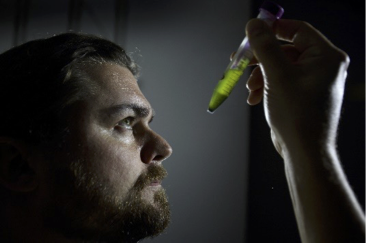Abstract
Cultivation of algae biomass is being pursued as a means for renewable production of various commodities, including fuels, polymers, fertilizers, and feeds, using non-arable land and non-freshwater resources. The especially attractive feature of algae, and the basis of much of the R&D investment, is the especially high productivity of algae biomass, which exceeds terrestrial plants by at least a factor of 3, coupled to favorable biochemical composition. However, DOE’s assessments of scale-up potential for all promising algae biofuel technologies to-date have resulted in Nth-plant model costs that exceed that of petroleum-derived products by factors of ~3-5. In light of this significant technoeconomic hurdle, new approaches for algae production are being pursued for incorporating ecosystem services to offset high costs for utilization of the biomass, including CO2 capture and remediation of compromised surface waters. In this presentation, we will discuss specific algae production technologies, including Open Raceway Ponds, attached ‘Turf Algae’ systems, and off-shore cultivation of macroalgae, and their respective connections to specific bioproducts, CO2 capture, and water resource management. Recent findings from research at Sandia suggest that cost effective, and in some cases, carbon negative solutions exist for algae industry scale-up, especially for generation of multiple products in a biorefinery context coupled to ecosystem services, such as water clean-up.
Speaker Bio
Ryan W Davis, Ph.D., is Principal Member of the BioSciences Staff at Sandia National Laboratories in Livermore, CA. Trained in biophysical chemistry, Ryan’s work focuses on bioenergy systems for coupling industrial and agricultural decarbonization with remediation and reclamation of resources from compromised waters. Since 2014, Dr. Davis has served as co-lead for Sandia’s Algae Testbed Facility, which provides translational research and external engagement for algae system scale-up. Major areas of current research interest include attached algae cultivation and proteinaceous biomass processing, with the overarching goal of understanding the biochemical coupling between the carbon and nutrient cycles from the single-cell to global scale.
